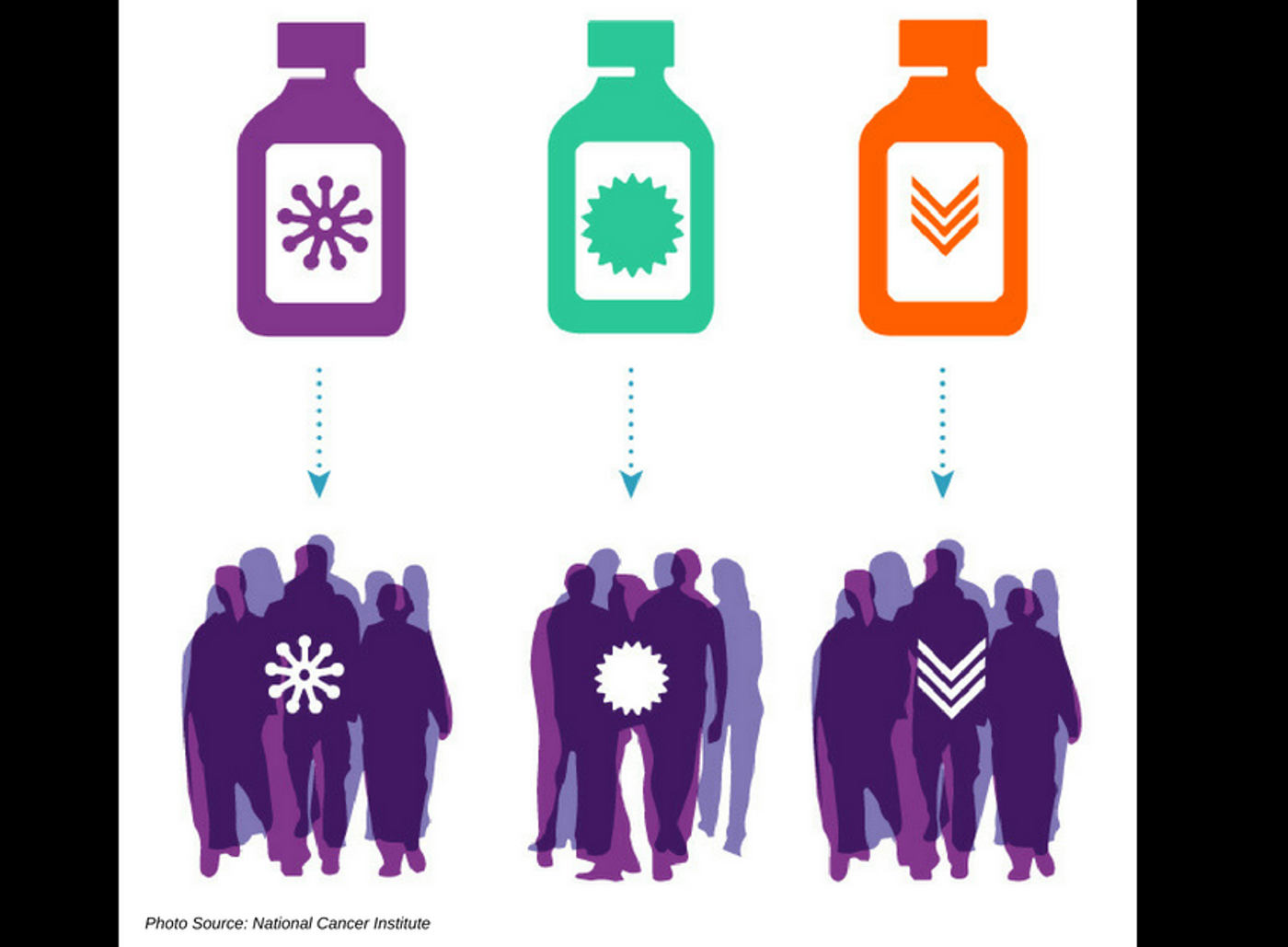Clinical Trial Evaluates Precision Medicine Approaches for Common and Rare Cancers
The National Cancer Institute (NCI) is supporting a precision medicine phase II clinical trial, NCT02465060 or NCI-Molecular Analysis for Therapy Choice (NCI-MATCH), focused on unique targeted therapies to solid tumors, lymphomas, or multiple myeloma based on genetic testing after having completed a minimum of one standard line of treatment, though in many cases these malignancies have no agreed upon standard treatment approach. Precision oncology medicine is advancing the field of cancer research in ways that were nearly unimaginable just a few decades ago. Challenges with uncommon cancers or those that don’t get as much attention in research are being helped by precision medicine approaches. Extensive clinical trials and pharmaceuticals are not specifically being developed for these types of cancers because the return on investment is lower (if rare, fewer people will incur the costs associated with research, development, and production). The types of cancers studied in this trial has exceeded the initial goal of collaborators. They had hoped to include 25% of patients with rare or uncommon cancers but have nearly 60% patients with cancers other than colon, rectal, breast, non-small cell lung, or prostate. There are currently 14 treatment arms included in this MATCH screening trial with more expected later this year. There are more than 1100 cancer centers enrolling patients so the size of this trial is continuing to grow.
Three treatment arms released results this week, and one released late last year show incredible promise for this type of research and therapeutic approach.
-
Arm I evaluated the drug taselisib for patients with a PIK3CA gene mutation. They found that 24 percent of patients had progression-free survival and this was even seen in patients with aggressive cancer types. Also of note, there were no objective responses to the drug, meaning it did not change much in size.
-
Arm Q looked at ado-trastuzumab emtansine (T-DM1) for HER2-overexpression tumors. Partial responses were observed in 3 very rare cancer types and 46 percent of patients had disease stabilized.
-
Arm W evaluated AZD4547 in patients with mutations of the Fibroblast Growth Factor Receptor and associated pathways for signaling. While only 10 percent had partial response, some of those patients had point mutations which only involved part of the gene which combined with another gene to create a fusion gene which this drug acted upon.
Researchers are continuing to look at a number of factors are part of their outcome data. They are evaluating for the percentage of patients whose tumors have complete or partial response to treatment based on specific cancer type and that cancer’s genetic profile. In addition, the team is looking to identify those patients with progression free survival. Lastly, the trial aims to gather data on the time it takes for progression of cancer (if it is identified) and to evaluate the side effects of these treatments for all of the arms on these less common cancer types.
The NCI-MATCH trial is a collaboration between multiple oncology organizations including ECOG-ACRIN Cancer Research Group, National Clinical Trials Network, Alliance for Clinical Trials Oncology, NRG Oncology Group, and Southwest Oncology Group (SWOG).
Sources: National Cancer Institute https://www.cancer.gov/about-cancer/treatment/clinical-trials/nci-supported/nci-match, ClinicalTrials.Gov https://clinicaltrials.gov/ct2/show/NCT02465060?term=NCT02465060&rank=1,









